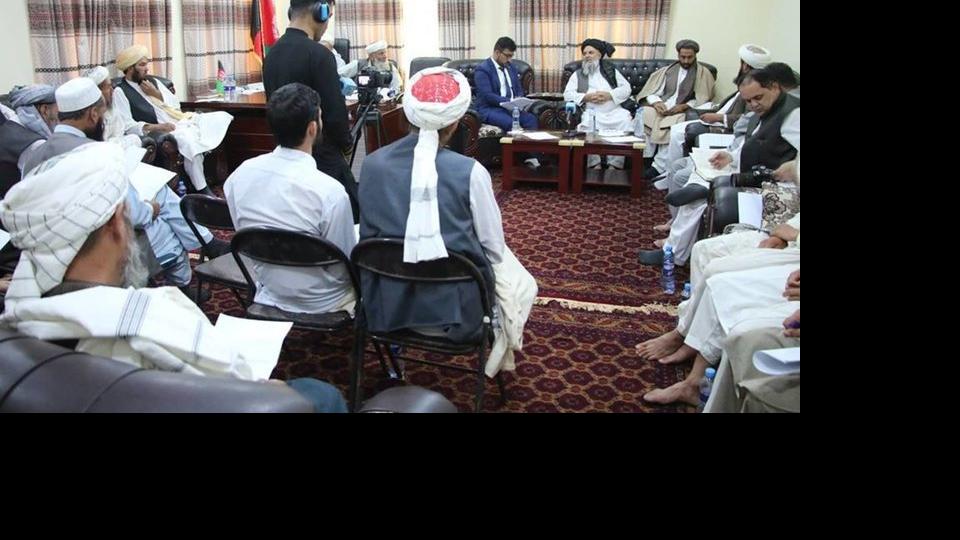KUNDUZ – A group of religious leaders in Kunduz province have reiterated their commitment to working for peace while calling on residents to get involved in local processes and dialogue on peace and security.
Speaking during a UN-backed discussion, a group of around 25 religious leaders stressed the need for greater citizen’s involvement, and dialogue between communities to build peace and harmony in the province. In their discussion, the religious leaders also stressed the role of religion in shaping communities and building a culture of peace and tolerance.
“Our religion teaches us to avoid any acts of violence,” said Mawlawi Muhammad Yaqub Sabir, one of the participants and an official from the Kunduz Department of Hajj and Religious Affairs, “I urge religious leaders to play a vital role in building peace and help to create peaceful environments,” he said.
Afghanistan’s religious scholars, known as Ulema, play an key role in setting moral and ethical standards for their communities. They often work as peace brokers and are respected at all levels of society, exerting influence on individual and community decisions.
The open discussion, which was subsequently televised on local Roshani TV to an audience of 500,000, was part of a UN-backed series on peace-building in the northeastern provinces of Kunduz, Takhar, Baghlan and Badakhshan. Participants called for the end to the conflict which they said has caused untold and prolonged suffering for Afghans. “We are tired of conflicts, everyone is tired, we want peace, we want prosperity, we have no other option but to end this war,” stated Mawlawi Abdul Qayum Ansari, one of the panellists.
Kunduz province shares a border with Tajikistan and like other provinces in the region, remains volatile to insurgency and armed conflict.
UNAMA continues to work with various institutions including religious leaders, provincial councils, community leaders, youth groups, women and local media stations such as Roshani TV to create platforms using radio, social media and television for Afghans to engage in local dialogues on pressing issues affecting their communities.






